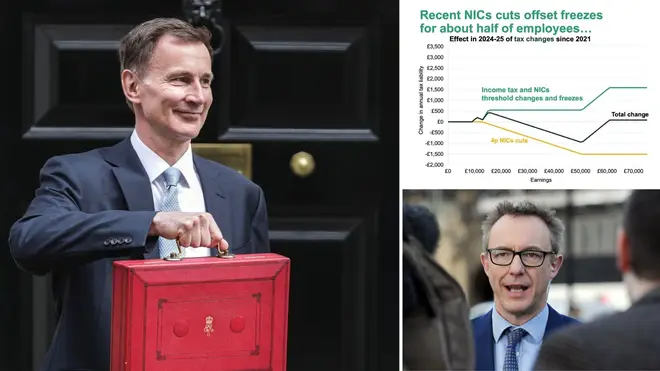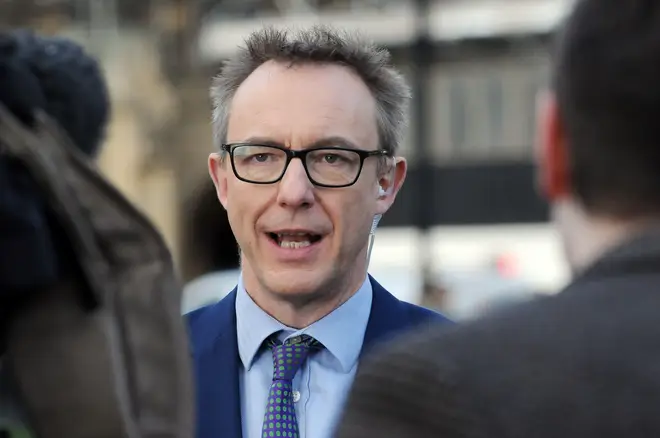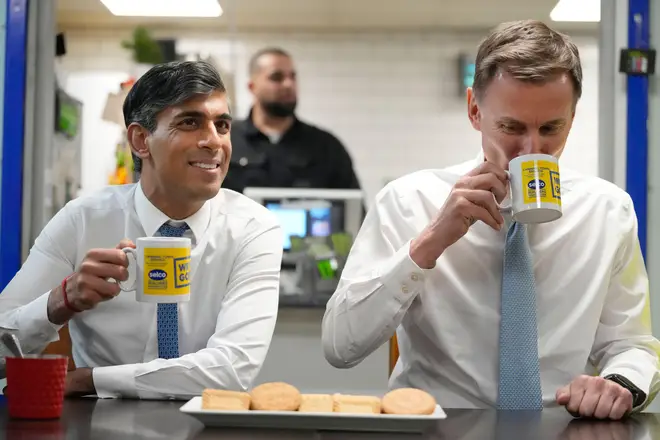
Clive Bull 1am - 4am
7 March 2024, 13:15 | Updated: 7 March 2024, 13:33

The next five years will be the hardest period for a parliament and chancellor since the Second World War, the IFS has warned.
The Institute for Fiscal Studies issued the warning in its post-Budget briefing on Thursday morning.
IFS director Paul Johnson expressed doubt over whether the Government would be able to stick to its spending plans for the upcoming year due to the country’s “fiscal realities”.
He said: “Ignoring the vagaries of the current, rather bizarre, fiscal targets these underlying facts are going to constrain chancellors for the foreseeable future.
"Fiscal rules or no, fiscal realities bite,” he told a briefing.
“The combination of high debt interest payments and low forecast nominal growth means that the next parliament could well prove to be the most difficult of any in 80 years for a chancellor wanting to bring debt down.
"Even stabilising debt as a fraction of national income is likely to mean some eye-wateringly tough choices, and we are talking tens of billions of pounds worth of tough choices, on tax and spending."

It comes after Mr Hunt announced a 2p cut to National Insurance contributions for employees in his Budget on Wednesday, from 10%-8%, with the change to come into effect from April 6.
But the Chancellor and Prime Minister have also indicated that they want to scrap national insurance altogether.
Mr Sunak said on Wednesday evening that abolishing national insurance was "our ambition long term", without giving a schedule. The tax cut could reduce government revenues by around £50 billion per year.
Mr Johnson hit out at the Prime Minister’s indicated goal, as he said cutting the tax altogether was not “realistic”.

“Tax has risen to a higher fraction of national income than it has ever been in my lifetime, and I don't expect it to return to its previous level for the rest of my lifetime,” he said.
He also warned that by accepting the slashed national insurance contributions, Labour had “made life more difficult for itself”.
“That is £10 billion a year they have lost. The opposition have been just as shy as the chancellor about telling us what they actually intend to do on taxes and spending after the election.”
“If I am sceptical about Mr Hunt's ability to stick to his current spending plans, I am at least that sceptical that Rachel Reeves will preside over deep cuts in public service spending,” he added.